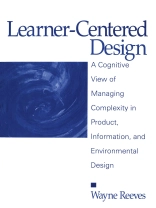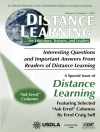The issue of complexity, as applied to the way we gather information and learn, is a hallmark of this information age. The sheer amount of data, in addition to the increasingly technological way in which the data are delivered, have had profound effects on the ways in which we process information and, hopefully, learn. In this interesting and cutting edge volume, Wayne Reeves, a professor as well as consultant to Sun Microsystems, provides an overview of the field of complexity (including chaos theory, information literacy, and Knowledge Management Tools) and presents a working framework to help guide further research. Aimed particularly at researchers, professors, and students in the areas of cognitive science and library/information sciences, the book looks at a wide variety of tools that are being used to help create knowledge: indexes, abstracts, hypertext info retrieval systems and the like and evaluates their ability to help researchers gain understanding about their topics – and how that impacts on problem solving and decision making.
Tabela de Conteúdo
Preface
Consumers and Complexity
Introduction
PART ONE: THE NATURE OF COMPLEXITY
The Nature and Origins of Cognitive Complexity
Evaluating Cognitive Complexity
PART TWO: MANAGING COMPLEXITY
Learner as Perceiver
Learner as Model Builder
Learner as Categorizer
Learner as Searcher
Learner as Expert
Learner as Student
Tools for Learner-Centered Design












